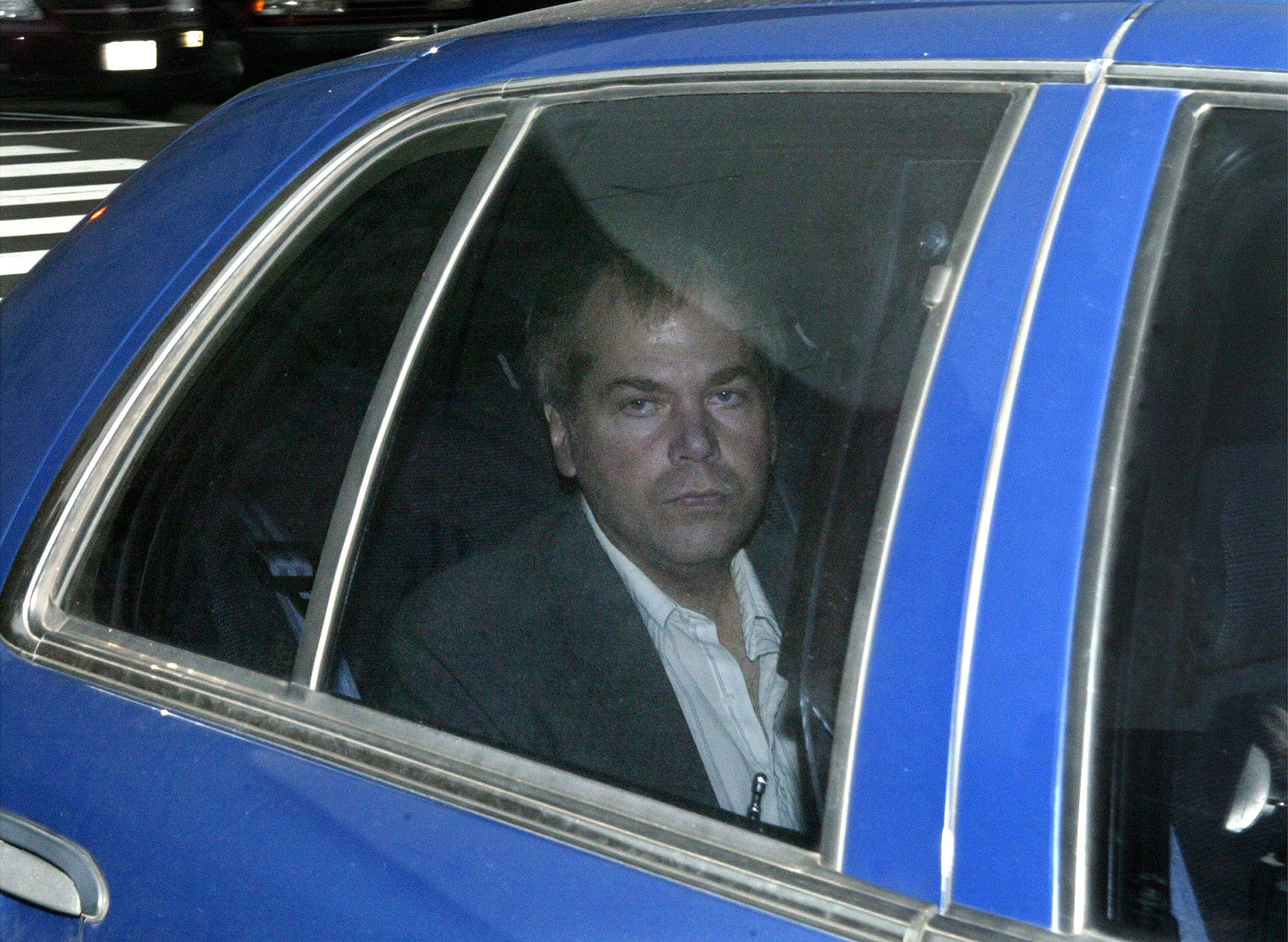Judge will consider ending restrictions for John Hinckley
A hearing is set to begin to consider whether the man who tried to assassinate President Ronald Reagan should be freed from restrictions he's been living under

Your support helps us to tell the story
From reproductive rights to climate change to Big Tech, The Independent is on the ground when the story is developing. Whether it's investigating the financials of Elon Musk's pro-Trump PAC or producing our latest documentary, 'The A Word', which shines a light on the American women fighting for reproductive rights, we know how important it is to parse out the facts from the messaging.
At such a critical moment in US history, we need reporters on the ground. Your donation allows us to keep sending journalists to speak to both sides of the story.
The Independent is trusted by Americans across the entire political spectrum. And unlike many other quality news outlets, we choose not to lock Americans out of our reporting and analysis with paywalls. We believe quality journalism should be available to everyone, paid for by those who can afford it.
Your support makes all the difference.Lawyers are scheduled to meet in federal court on Monday to discuss whether John Hinckley Jr., the man who tried to assassinate President Ronald Reagan should be freed from court-imposed restrictions ranging from how his medical care is overseen to keeping officials updated on what his computer passwords are.
Hinckley, 66, moved to Williamsburg Virginia, from a Washington hospital in 2016. Since then, the court-imposed conditions have included doctors and therapists overseeing his psychiatric medication and deciding how often he attends individual and group therapy sessions. Hinckley also can’t have a gun. And he can’t contact Reagan’s children, other victims or their families or actress Jodie Foster — with whom he was obsessed with at the time of the 1981 shooting.
A status conference is scheduled for Monday before U.S. District Judge Paul L. Friedman in Washington.
Hinckley’s attorney, Barry Levine, said last month that he should get what’s called “unconditional release” because he no longer poses a threat. A 2020 “violence risk assessment” conducted on behalf of Washington’s Department of Behavioral Health said Hinckley would not pose a danger.
The U.S. government had opposed ending restrictions in a May court filing. It also retained an expert to examine Hinckley and determine “whether or not he would pose a danger to himself or others if unconditionally released.” Findings from such an examination have not been filed in court.
Hinckley was 25 when he shot and wounded the 40th U.S. president outside a Washington hotel. The shooting paralyzed Reagan press secretary James Brady who died in 2014. It also injured Secret Service agent Timothy McCarthy and Washington police officer Thomas Delahanty.
Hinckley was suffering from acute psychosis. When jurors found him not guilty by reason of insanity, they said he needed treatment and not a lifetime in confinement.